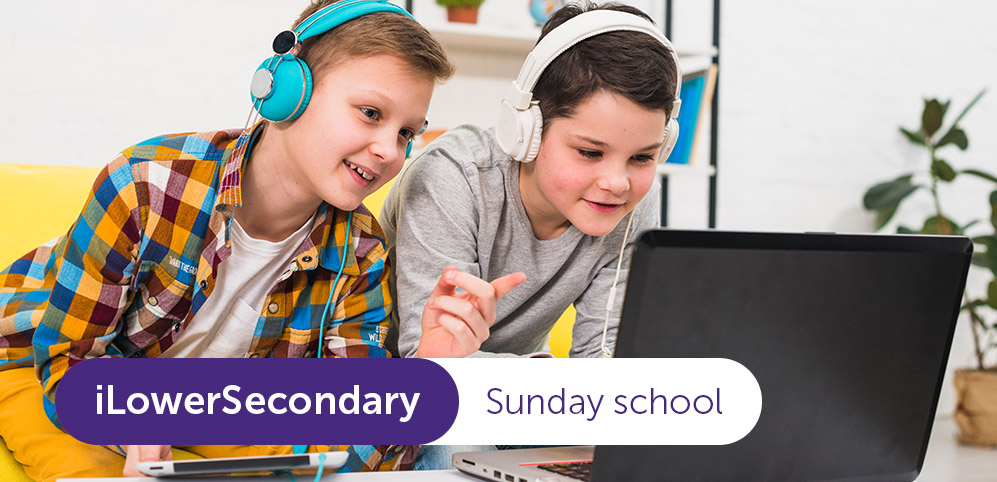iLowerSecondary | Science

About this course
Children are naturally curious and science supports the development of a child’s curiosity, helping them to investigate problems, learn more about the world around them, understand and use scientific explanations for a wide range of phenomena. Within two subjects, Physics and Geography, the iLowerSecondary Science curriculum gives the students the opportunity to understand the nature, processes and methods of science and to achieve highly in later examinations.
FAQs
Why is it better to study Science than to study separate subjects, such as Physics, Biology and Chemistry?
Science is taught in ways that ensure that students gain the knowledge which helps them to develop curiosity about the natural world, insight into working scientifically, and they will be able to see the relevance of science to their everyday lives.
At this course they develop:
- Scientific knowledge and conceptual understanding in the areas of biology, chemistry and physics.
- Understanding of the nature through scientific enquiry, which helps them to answer scientific questions on the world around them.
- Learning of how to apply observational, practical and enquiry-based skills to the world around them.
- They will develop their skills of critical analysis of methods, evidence and conclusions.
What level of English do students need to study Science in English?
To start the course of iLowSecondary Science students need to have a B1 (Intermediate) level of English. At this level students:
- Are able to understand the main points of clear texts in standard language if they are about topics with which they are familiar.
- Is able to produce simple, coherent texts about topics with which they are familiar or in which they have a personal interest.
Can describe experiences, events, wishes and aspirations, as well as briefly justifying opinions or explaining plans.
Physics helps learners to understand the technological world in which they live, and take an informed interest in science and scientific developments.
Topics:
- Energy
- Motion and Forces, Electricity
- Electromagnetic fields, Light
- Sound
- Engines
- Pressure
- Substances
- Materials
- Reactivity
- Space
About 300 words and phrases
Skills
- Know the properties of different forms of energy: thermal energy, chemical energy, kinetic energy, gravitational potential energy, elastic potential energy, nuclear energy; understand that energy can be transferred between energy stores, understand the law of conservation of energy.
- Know the properties of a bar magnet, a compass give the definition and properties of poles, magnetic field, electromagnet.
- Know the definition and properties of static electricity, electric current, electrical resistance.
- Know the properties of sound, understand the terms volume, pitch, frequency, know that sound waves transfer energy.
- Understand the notion of light, explain the terms incident ray, reflected ray, normal, angle of incidence and angle of reflection, describe the process of refraction.
- Understand that forces are pushes or pulls that can change the speed of an object, the direction, or the shape, explain the contact forces, such as friction, upthrust, air and water resistance, gravity, magnetism, know the difference between mass and weight, know the properties of gravitational force, perform simple calculations of resultant forces.
- Apply the knowledge of physics in real life: choose household appliances based on technical specifications, examine the physical properties of products, choose the best seats in the concert hall.
Geography has a key role to play in enabling young people to make sense of, to understand and to make a positive contribution to planet Earth. Thus, through a mix of theoretical and practical studies the students not only prepare for their International GCSEs but become aware of the concepts and principles of the world we live.
Topics:
- 5 main topics of geography, Location
- Regions
- Great geographical discoveries
- Weather and climate, Natural disasters
- Water resources, Population geography, Urbanization
- Ecology
- Ecosystems
- Global problems
About 400 words and phrases
Skills
- Develop an understanding of the processes which affect physical and human environments.
- Understand the concept of space and location on a local, regional and global scale, find the necessary information on a map, diagram, globe, GIS.
- Use and understand geographical data.
- Describe geographical objects and phenomena.
- Understanding of how communities around the world are affected and constrained by different environments.
- Know to behave in the situations of emergency.
- Create unique tourist routes, compose crosswords, quizzes and geographical games.
- Talk about geographical discoveries.
- Gather a collection of amazing facts «Do you know that…?»
To get the best result we recommend studying all three subjects.
| Program iLowSecondary (for children 12-15 y.o.). Year 7-9 |
| 3 subjects: Mathematics, Science and English |
| 36 lessons on each subject, every lesson lasts 60 minutes |
| Price of the course (3 subjects) 2280 € |
| Registration fee 200 € |
